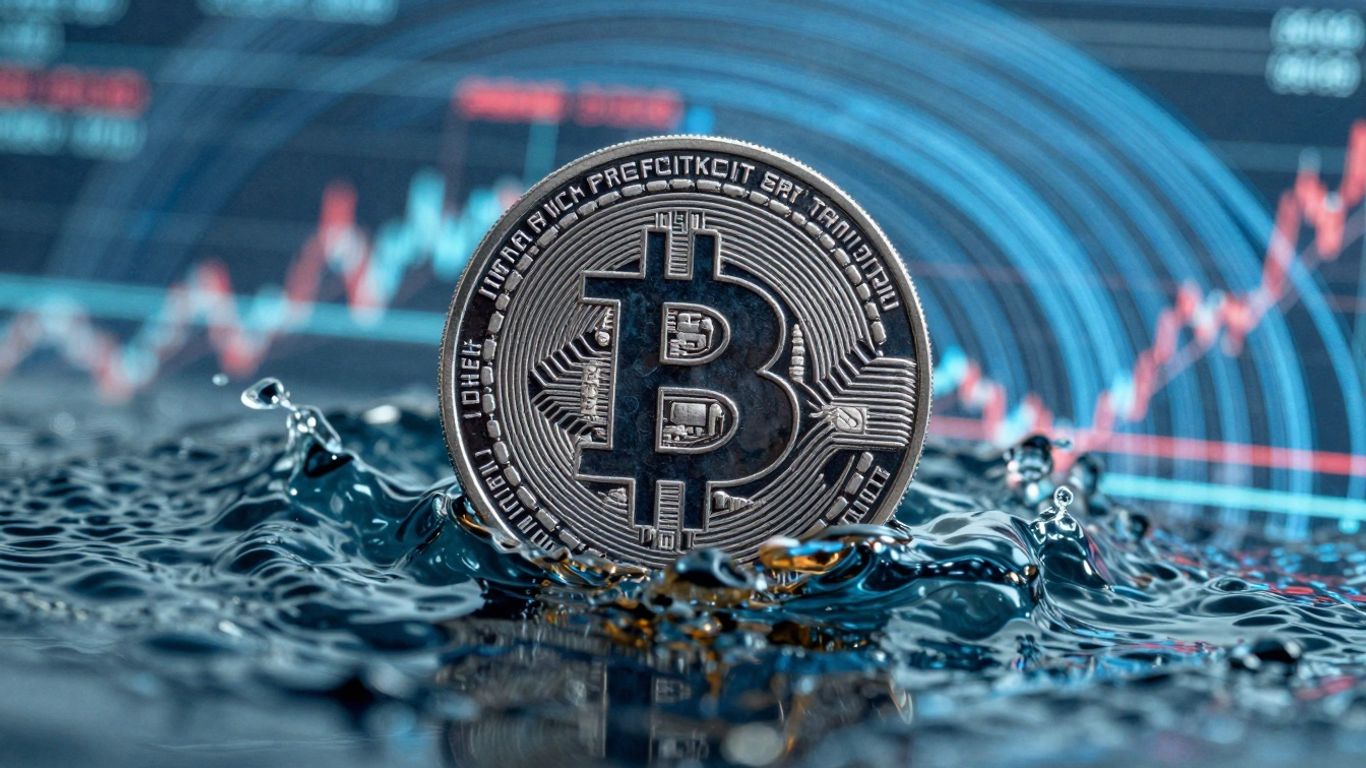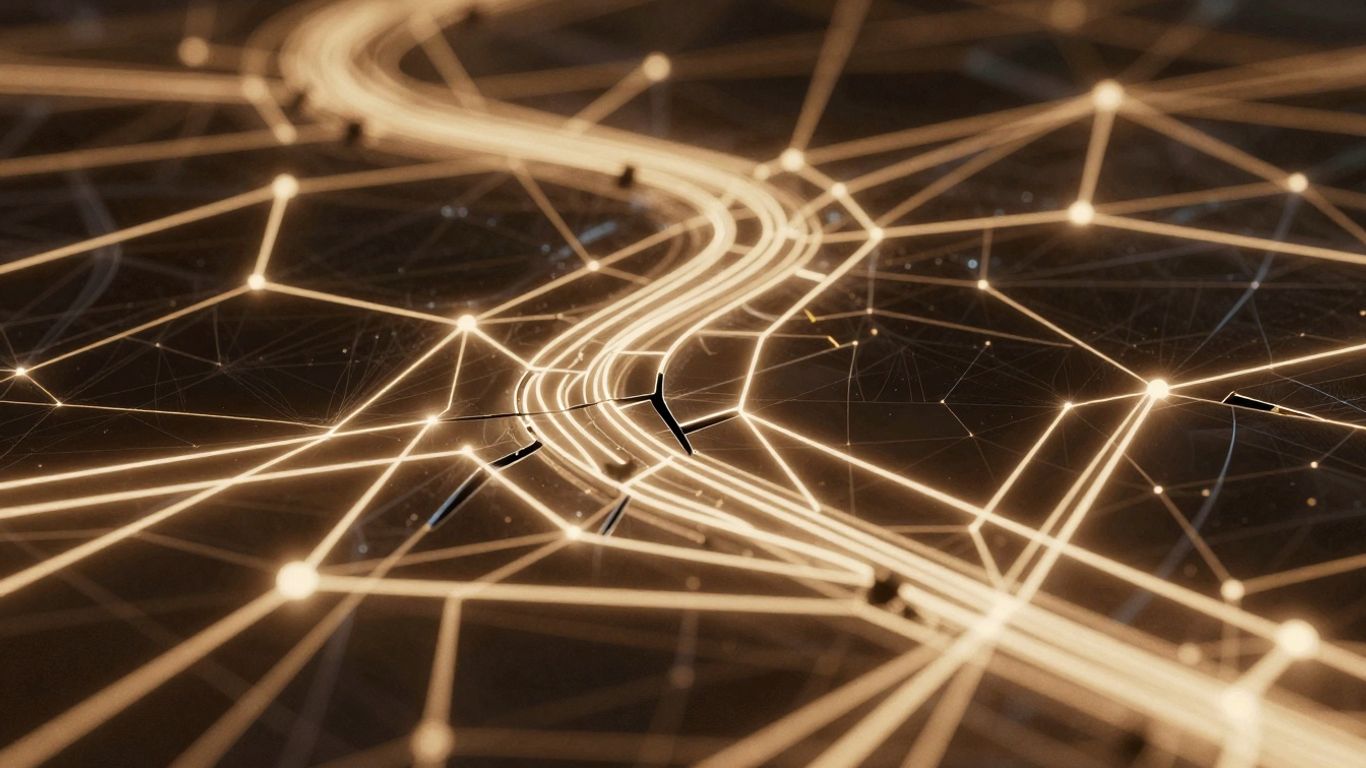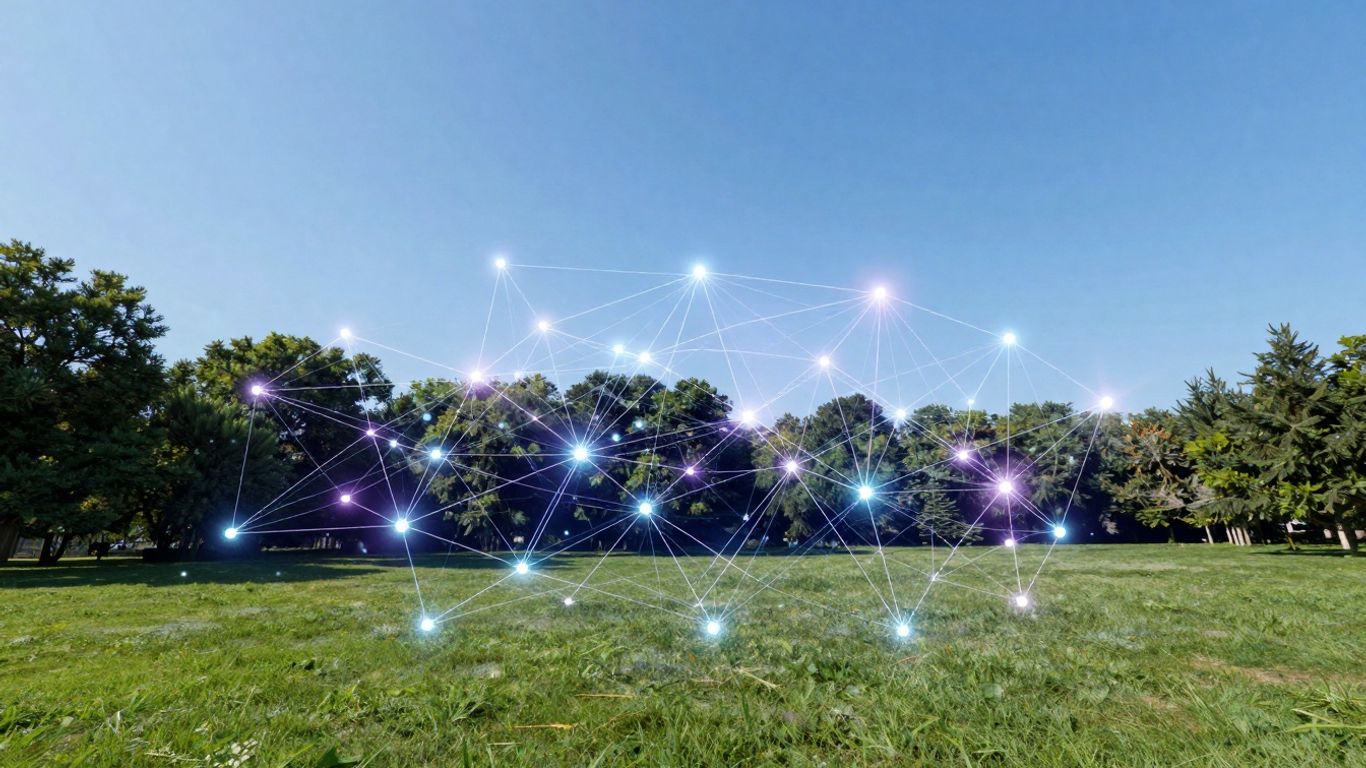[ newsletter ]
Stay ahead of Web3 threats—subscribe to our newsletter for the latest in blockchain security insights and updates.
Thank you! Your submission has been received!
Oops! Something went wrong. Please try again.
Learn essential DeFi security setup tips to protect your digital assets and navigate decentralized finance safely.





Setting up your DeFi security is a big deal in the crypto world. With the rise of decentralized finance, knowing how to protect your assets is more important than ever. This guide will help you get your DeFi security setup right, so you can enjoy the benefits of DeFi without the constant worry of losing your funds.
DeFi is still pretty new, and while it's exciting, it's also risky. Security is super important because if something goes wrong, you could lose all your money. Think of it like this: traditional banks have tons of security measures, but in DeFi, you're often your own bank. That means you're also responsible for your own security. With so much value locked in DeFi protocols, it's a huge target for hackers. A robust testing strategy is essential to ensure the security, reliability, and performance of DeFi apps.
There are a bunch of ways things can go wrong in DeFi. Smart contracts can have bugs, hackers can try to steal your private keys, and there are always phishing scams trying to trick you. Here's a quick rundown:
Staying safe in DeFi means being smart and careful. Here's what I try to do:
It's easy to get caught up in the hype of DeFi, but always remember to prioritize security. Take your time, do your research, and don't be afraid to ask questions. Your financial safety is worth it.
Okay, so you're ready to jump into DeFi? Awesome! First things first, you're gonna need a wallet. Think of it as your digital bank account, but way cooler (and potentially riskier, so pay attention!). Let's get this set up right.
There are a bunch of different DeFi wallets out there, and picking the right one can feel overwhelming. You've got software wallets (like browser extensions or mobile apps), hardware wallets (physical devices), and even web-based wallets. Each has its pros and cons. Software wallets are convenient but can be more vulnerable if your computer gets compromised. Hardware wallets are super secure but can be a pain to use for frequent transactions. Web wallets? Well, they're somewhere in between. I'd say, for most people starting out, a well-regarded software wallet is a good bet. Just do your research and read some reviews before you commit. Consider factors to consider when choosing a wallet.
Here's a quick rundown:
Alright, you've picked a wallet. Now comes the REALLY important part: your seed phrase. This is a list of 12 or 24 words that's basically the key to your entire wallet. If you lose it, you lose access to your funds. If someone else gets it, they can steal your funds. Seriously, this is not something to mess around with. Write it down on a piece of paper (or two!), store it in a safe place (or two!), and NEVER, EVER share it with anyone. Not even if they claim to be tech support. No legitimate service will ever ask for your seed phrase. I'm telling you, this is the most important thing. Treat it like the nuclear launch codes. Seriously.
I cannot stress enough how important it is to protect your seed phrase. It's your responsibility to keep it safe, and there's no
Okay, so you're probably wondering why you should even bother with two-factor authentication (2FA). It might seem like an extra step, but trust me, it's worth it. Think of it as adding an extra lock to your front door. It significantly reduces the risk of someone gaining unauthorized access to your DeFi wallet and funds.
Here's a quick rundown of the benefits:
Enabling 2FA is usually pretty straightforward, but the exact steps can vary depending on the wallet or platform you're using. Generally, you'll find the option in your account settings under "Security" or "Login Settings".
Here's a general idea of what the process looks like:
There are a few different ways to implement 2FA, each with its own pros and cons. Let's take a look at some of the most common methods:
Choosing the right 2FA method depends on your individual needs and risk tolerance. For most users, an authenticator app is a good balance of security and convenience. If you're dealing with large amounts of crypto, a hardware security key might be worth the investment.
Okay, so OPSEC, or Operational Security, might sound super technical, but it's really just about protecting your info. Think of it as keeping your DeFi secrets safe from prying eyes. It's about understanding where your critical information is vulnerable and taking steps to protect it. This includes everything from your hardware wallet PIN to your exchange passwords. It's a mindset, really, about thinking like someone who wants to steal your stuff and then figuring out how to stop them.
Your computer and phone are basically the front lines of your DeFi security. Here's what I do:
It's not just about your devices; it's also about how you handle your information. Here are some things to keep in mind:
OPSEC is an ongoing process, not a one-time thing. You need to constantly be aware of the risks and take steps to protect yourself. It might seem like a lot of work, but it's worth it to protect your hard-earned crypto. It's better to be safe than sorry, especially in the world of DeFi.

Smart contract audits are super important for keeping your DeFi projects safe and sound. Think of them as a health check for your code. They help catch bugs and security holes before they can cause real damage. A good audit can save you a ton of money and stress in the long run. It's like having a second pair of eyes (or a whole team!) looking over your work to make sure everything is solid.
Skipping an audit is like building a house without checking the foundation. It might look good at first, but it could collapse at any moment.
Picking the right audit service is key. You want a team with a good reputation and plenty of experience. Look for firms that specialize in Solana smart contracts and have a track record of finding real issues. Don't just go for the cheapest option; quality matters here. Check out their past work and see what other people are saying about them. It's worth spending a bit more to get a thorough and reliable audit.
Once you get your audit report, take the time to really understand it. It might seem like a bunch of technical jargon, but it's important to know what the auditors found and what they recommend. Pay close attention to the severity of each issue and prioritize fixing the most critical ones first. Don't be afraid to ask the auditors questions if anything is unclear. The report should give you a clear action plan for improving your smart contract's security.
| Severity | Description 1
Okay, so you've got your DeFi wallet all set up, you're feeling pretty secure, but the job's not done. You need to keep a close eye on what's happening with your crypto. Setting up alerts is a great way to do this. Think of it like a home security system, but for your digital assets.
Blockchain explorers are your best friends when it comes to monitoring transactions. These tools let you see every single transaction that's ever happened on a blockchain. It's like having a public ledger that anyone can view. You can use them to track your own transactions, verify that funds have been received, and even investigate suspicious activity. There are several blockchain explorers out there, like Etherscan for Ethereum and Blockchair for Bitcoin. They all work pretty much the same way: you enter a wallet address or transaction ID, and it shows you all the details.
Spotting something fishy early on can save you a lot of headaches (and money). But what does suspicious activity even look like? Here are a few things to watch out for:
It's a good idea to regularly review your transaction history, even if you haven't received any alerts. Set aside some time each week to go through your transactions and make sure everything looks legit. It's better to be safe than sorry.

DeFi is still pretty new, and that means there are a lot of opportunities for bad actors. New scams pop up all the time, so it's super important to stay informed. Following crypto news sites and security blogs is a good start. Also, be wary of anything that sounds too good to be true – those high-yield farming opportunities might just be rug pulls waiting to happen. Always do your own research before jumping into anything.
Crypto markets are known for their ups and downs, and DeFi is no exception. Prices can swing wildly in short periods, and that can be scary. It's important to understand that you could lose money, and you should only invest what you can afford to lose. Don't get caught up in the hype and make impulsive decisions. Consider setting up transaction alerts to monitor your investments.
Phishing is a big problem in the DeFi space. Scammers will try to trick you into giving up your seed phrase or private keys. They might send you fake emails or messages that look like they're from a legitimate DeFi platform. Always double-check the URL before entering any sensitive information, and never share your seed phrase with anyone. Here are some things to keep in mind:
It's easy to get caught up in the excitement of DeFi, but it's important to stay grounded and protect yourself. Take the time to learn about the risks involved, and don't be afraid to ask questions. The more you know, the better equipped you'll be to navigate the DeFi landscape safely. Remember that securing your seed phrase is paramount.
In conclusion, while no crypto wallet is completely foolproof, you can take steps to keep your assets safer. Using a hardware wallet, turning on two-factor authentication, and keeping an eye on your transactions can help a lot. Always stick to well-known and trusted DeFi platforms and exchanges to minimize risks. Remember, the most important thing is to keep your seed phrase secure. Write it down and store it somewhere safe, away from the internet. With these tips, you can dive into the DeFi world with more confidence.
A DeFi wallet is a special type of digital wallet that lets you manage your cryptocurrencies without needing a bank or a third party.
You should write your seed phrase down on paper and store it somewhere safe. Never share it online or with anyone.
Two-factor authentication is a security method that requires two forms of verification before you can access your account, making it harder for hackers.
Smart contract audits are important because they check for mistakes or security issues in the code, helping to keep your money safe.
You can use blockchain explorers to monitor your transactions and set up alerts for any unusual activity.
If you think you have encountered a phishing attempt, do not click any links and report it to the proper authorities.


